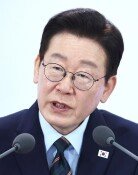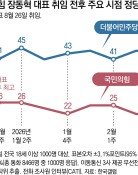Supreme public prosecutors office examined the history of reporters phone calls
Supreme public prosecutors office examined the history of reporters phone calls
Posted October. 06, 2003 22:56,
Central bureau of investigation (Chief prosecutor An Dae-hee) in Supreme public prosecutors office has pursued the history of its investigation team and reporters phone calls to find out who let the information out while investigating Hyundai and SKs black money. This now holds a controversy that concerns infringe on the freedom of speech.
It is known that Central bureau of investigation made related prosecutors and staffs submit the data including the phone numbers which they used after opening investigation on black money of Hyundai in July and compared it with those of reporters to detect who leaked the information out. Central bureau of investigation imposed related prosecutors and staffs to make a memorandum, which is warning possible punishment for disclosing official secrets in case of revealing the secrets to the press, and even to notify personal relationships with reporters.
As a matter of fact, when news reported that Kim Yong-wan, who was known that controlled the Democratic party former senior advisor Kwon No-gaps black money which Hyundai offered, had concealed his property abroad, Supreme public prosecutors office started searching out the information provider and finally relegated an officer, who made phone calls with related reporters, in central bureau of investigation to one of branches in national capital region.
It is also suspicious that Central bureau of investigation has referred the history of related reporters cellular phone traffic to each mobile communication company for confirming there were phone calls between reporters and investigation team.
Accordingly, legal professionals pointed out that prosecutors abuse the pursuit of phone call history not to investigate but to disturb reporters and it should be urgently handled.
Protection of secrets in communication act prescribes that prosecutors can demand electrical communication company to verify particular communications only for the purpose of investigation on criminals.
One in Supreme public prosecutors office remarked when internally secured facts were disclosed to the press, once we have followed up how the information was exposed but we cannot explain it more concretely. We would not do it again.
Wi-Yong Jung viyonz@donga.com



![[단독]폴란드, 韓 해군 최초 잠수함 ‘장보고함’ 무상 양도 안받기로](https://dimg.donga.com/c/138/175/90/1/wps/NEWS/IMAGE/2026/02/27/133437397.1.jpg)
![‘노인 냄새’ 씻으면 없어질까?…“목욕보다 식단이 더 중요”[노화설계]](https://dimg.donga.com/c/138/175/90/1/wps/NEWS/IMAGE/2026/02/27/133434557.3.jpg)


